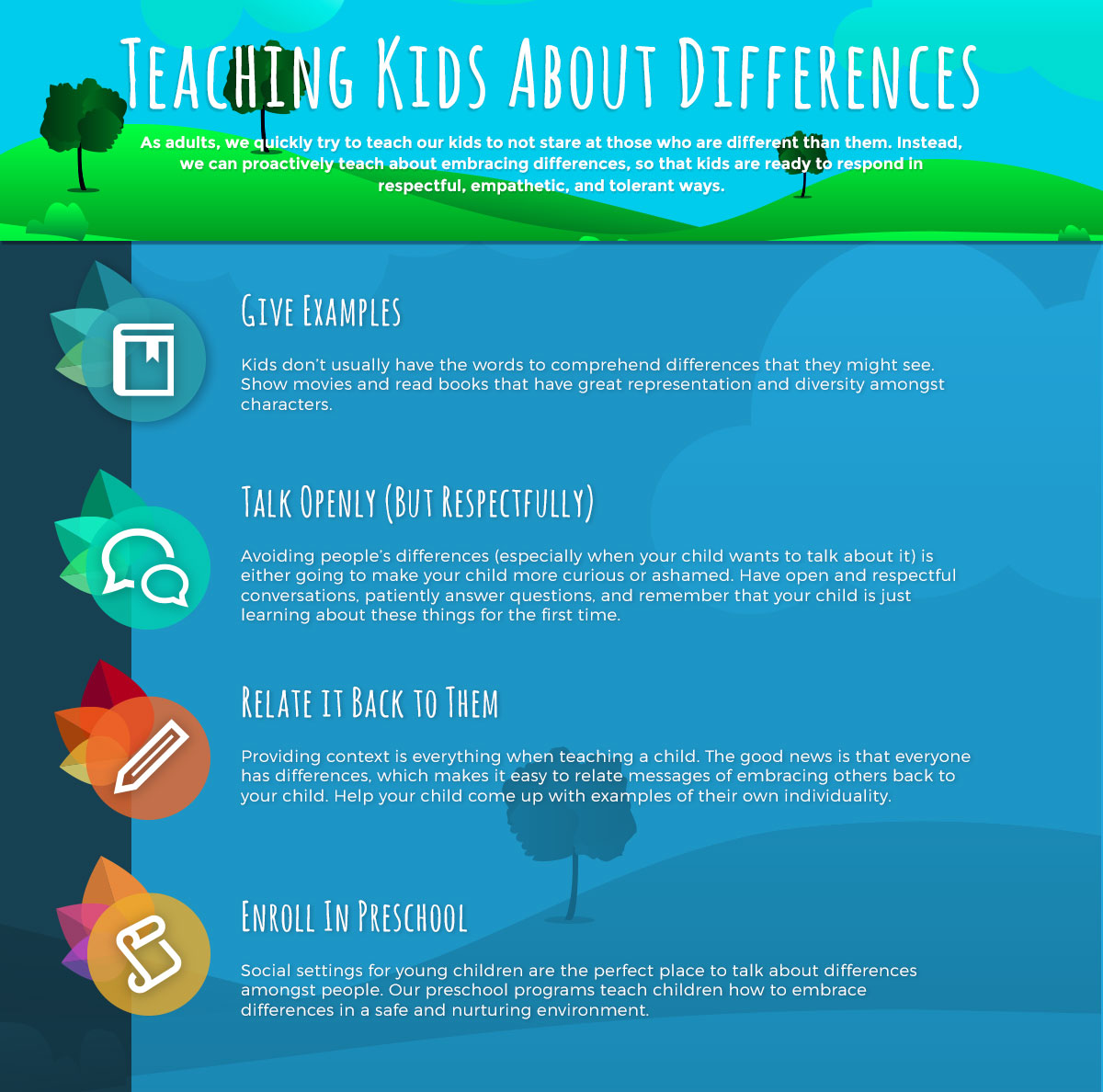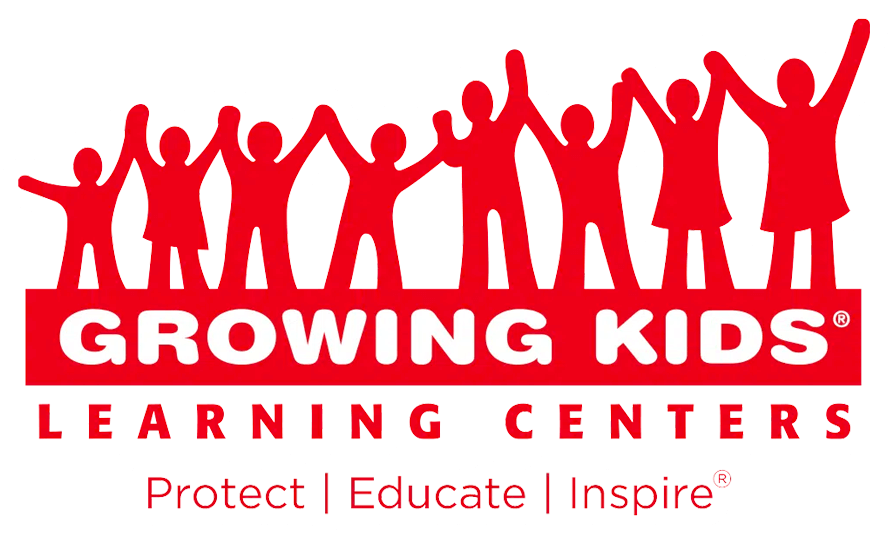Kids are highly perceptive, and equally as vocal about what they see. They’ll be the first to tell you that you look tired or, God forbid, old. They’ll also be quick to mention whenever they see differences amongst other people.
If the thought of your child pointing out a person who is different than them is simply mortifying, you’re not alone. It’s common for kids to want to understand the newness of the world around them! However, there are great lessons in empathy that show up at these opportunities.
You might not fully be able to prevent your child from shouting about a woman using a wheelchair, but you will be able to teach tolerance with these tips from Growing Kids Learning Centers. Find out how to teach young kids about differences, and look into preschool and child care with our schools in South Bend (at Ireland Road, State Road 23, and North Bendix Drive), Chesterton, Goshen, Warsaw, Plymouth, Elkhart, Bristol, or Valparaiso today!
Give Examples
If you’re trying to avoid having your child call attention to someone who’s different from them, be proactive! Find books and movies that show great examples of representation. If the majority of your child’s exposure to fictional and nonfictional characters are very similar to them or your family, find more diverse examples.
There are some amazing, kid-friendly books that do the work of giving examples of differences for you. Purchase “It’s Okay to Be Different” by Todd Parr, “Elmer” by David McKee, “Princess Hair” by Sharee Miller, and “The Boy in the Dress” by David Walliams for your library collection.
Have Open Discussions
When you were growing up, you might have had moments where adults told you not to notice or think about other people’s differences. You might have even been told not to talk about them, or been scolded for your inquiries. At best, this breeds a lot of curiosity without direction; at worst, it creates feelings of shame.
No child should be ashamed for asking questions, especially when they have no context for what they’re asking about. Have conversations about appropriate times (and speaking volumes!) to ask questions, how other people might feel if they become the center of attention without their permission, and how you will always answer your child’s questions — it just might not be right when they want an answer.
Relate it Back to Them
The great thing about this lesson is that everyone is different! We all have our own unique tendencies, looks, and personalities. Even when your child might feel like someone else is different, the truth is that the stranger walking on the street will find them (your child) just as different!
It’s always important to focus on how we have things in common with one another, but it’s even more important to remember how our greatest commonality is that we are all different. And these differences can and should be celebrated.
Enroll in Preschool
From the books we read at Growing Kids Learning Centers to the peer-to-peer interactions we help supervise, facilitate, and use as teaching moments, your child will confidently learn how to embrace others’ differences — as well as their own. Social-emotional growth and empathy are two of the greatest and most important skills for a child to learn. Preschool is the perfect place to work on these skills, especially when you enroll with Growing Kids Learning Centers. Tour one of our schools today!

